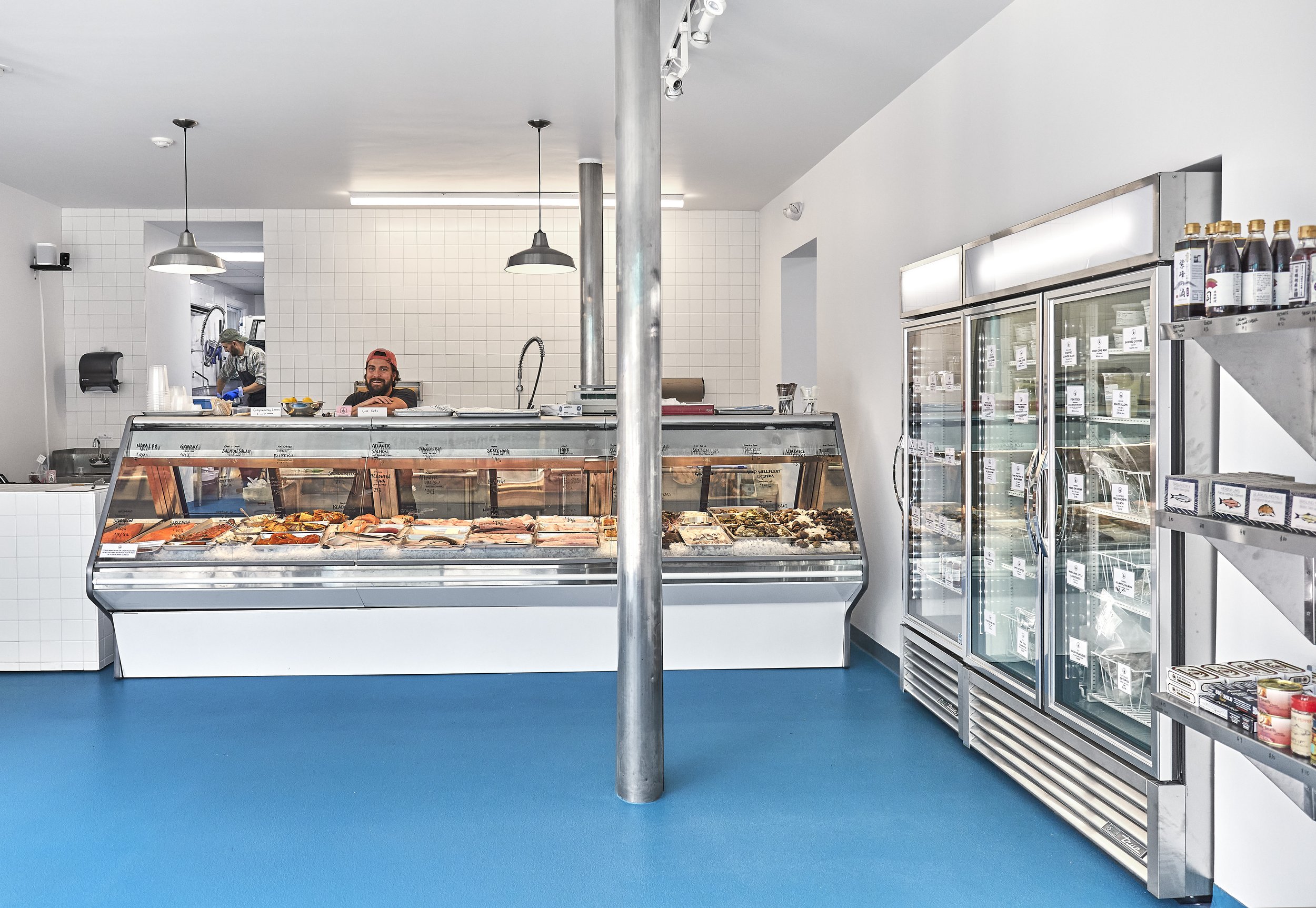
BEST FISHMONGER OF ALL TIME?
BEST FISHMONGER OF ALL TIME?
HOURS
TUESDAY - FRIDAY: 10:30 - 6:30
SATURDAY: 9:30 - 5:30
SUNDAY - MONDAY: CLOSED
Need a gift for that pescaphilian in your life?
Press and recognition
-

A centuries-old method for tastier fish is catching on in Providence
The owner of a popular fish market in Rhode Island is using ikejime, a Japanese slaughter method that leads to longer shelf life and enhanced flavor
The Boston Globe | July 11, 2024
By Alexa Gagosz
PROVIDENCE — Using a small fridge in the corner of his empty shop as a table, Stuart “Stu” Meltzer was taking a break recently, using chopsticks to pick up slices of raw fluke and dunking them in soy sauce before snacking on them. His popular Fearless Fish Market on Hope Street was closed for the day when I visited him, and he handed me a 10-page packet of notes, titled “A fishmonger’s take on how we’re talking about fish all wrong.”
Three and a half hours of reading and conversation later, I had learned a lot. And I realized how lost I’ve felt when it comes to the basics of buying and eating fish.
-

Buying Ikejime-Caught Fish Just Got Easier at Fearless Fish Market
Fishmonger Stu Meltzer explains what makes ikejime superior to conventional harvesting methods, and six other fish-buying facts to consider.
Rhode Island Monthly | August 4, 2024
By Jamie Coehlo
Stu Meltzer is serious about fish. The bearded fishmonger talks about it in a way a proud father talks about his children. He opens the door of an outdoor cooler that is located directly in back of Fearless Fish Market, and begins to explain how totes of fish are stacked with ice and labeled by species and the name of the fisherman who caught them. “Everything is labeled by harvest date and the size,” he says. “When we ship it out, we know which fish were harvested on which day.”
He points to a nearly pure white fluke resting on ice and explains how this radiant fish was bled out as part of the Japanese ikejime method of harvesting fish.
-

Japanese Method of Humane Fish Killing Improves Quality and Flavor
Practice could benefit local fisheries, help with sustainability
KINGSTON, R.I. — Hirotsugu Uchida used to travel to Massachusetts to visit a Japanese grocery store whenever he wanted to get high-quality fish he knew he could safely eat raw. So, when Fearless Fish Market opened in Providence, serving high-quality, local fish, he quickly became a frequent patron.
Although he is a professor of environmental and natural resource economics at the University of Rhode Island, Uchida only started to think seriously about how his own issue finding fresh fish could be applied to his work when he started talking to Fearless Fish owner Stuart Meltzer.
-

'There's no fish you can't make delicious'
As many as 100 edible fish populate the waters of the northwest Atlantic. New Englanders, however, ‘tend to favor just a few.’ The industry is trying to change that.
The Boston Globe | April 5, 2022
by Ann Parson
Walking into Fearless Fish, a small market in Providence specializing in local seafood, is like walking into Tiffany’s. The showcases dazzle the eye.
There’s familiar fare, like Atlantic salmon, haddock, and sea scallops. There’s also a riveting range of fish that are relatively mysterious, curios like scup, butterfish, pollack, Acadian redfish, conger eel, and monkfish. While abundant in our waters, these so-called “underutilized” species — less known to New Englanders, less tasted, less in demand — are often exported to countries that apparently appreciate them much more than we do.















